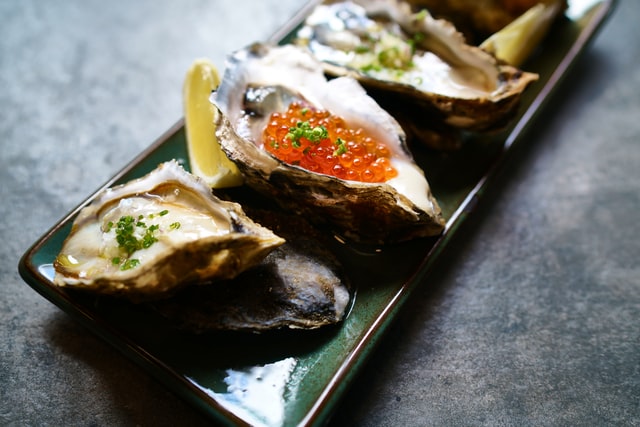How to Eat Oysters
What are they? What should I eat them with? How long should I wait before I eat them? Will they hurt my teeth or stomach? These are some questions you might ask yourself once. But now, let’s see if you should really worry about these things.
You may have heard of oysters (or maybe even tried them!) – they are quite delicious. And since they are such popular seafood, you probably wonder why they get a bad reputation. After all, they don’t contain any mercury, unlike other seafood, nor do they harm the environment. What exactly is the problem? Well, there are several myths surrounding oysters that aren’t true at all.
Oysters are pretty much safe for consumption. In fact, they’ve got tons of benefits, especially for our health. They are rich in vitamins and minerals, antioxidants, omega fatty acids, iron, zinc, manganese, and copper. Plus, they provide plenty of protein, calcium, phosphorus, and magnesium. If you want to try them, simply enjoy them raw with lemon juice and salt.
How to Eat Oysters
Step 1
Open up your oyster shell and then pop out the meat from inside its protective membrane. Try not to let it touch anything else! You can keep the shells on or discard them see more here online casino.
Step 2
Now take a little bit of your oyster meat into one hand, and place it on your tongue. Close your mouth quickly after the initial bite so as not to swallow too much of the meat. This way you will be able to taste more of its flavors. When you’re ready for another bite, repeat this step until the entire oyster has been consumed.
Step 3
Repeat steps two and three with each one of your oysters and savors their unique flavor.
Health Benefits of Raw Oysters
When you consume oysters cooked properly, they won’t give you a hangover because they tend to lessen alcohol’s negative effects.
They also help balance your pH levels by neutralizing acidity in the body. Thus, they are excellent for those people who suffer from acid reflux, heartburn, indigestion, or constipation.
Raw oysters are great for relieving stress, anxiety, depression, and insomnia. Furthermore, they are an effective detoxifier that helps eliminate toxins from the body.

The mineral element zinc found in oysters supports healthy skin, eyes, hair, and nails. It improves your immune system and contributes to the proper functioning of your digestive tract, which means better digestion overall.
Oysters also support blood circulation and boost energy throughout the body. Additionally, they promote bone growth and maintain strong connective tissue.
And last but not least, oysters are a good source of selenium. Selenium works together with vitamin E to produce glutathione, a powerful antioxidant that protects organs like the liver and kidneys from harmful substances.
If you need something refreshing to go along with your meal, try eating oysters with champagne or vermouth. Champagne contains bubbles that will add a nice kick to the drink. The flavor of vermouth is similar to gin, but with a sweet undertone from the herbs used to make it.
The best thing about oysters is that you can find them almost anywhere you look. Restaurants usually serve them grilled, steamed, or deep-fried. But if you feel like being adventurous, just try some and see how you like it.
Conclusion
There are other things you can eat that are good for your health. For example, salmon is packed with nutrients and omega fats. And although it is considered an oily fish by most Americans, it doesn’t mean that it necessarily causes weight gain. In fact, there are quite a few studies linking seafood to a reduced risk of obesity. On top of that, eating salmon is actually associated with lower cholesterol values.
However, it is still important for you to do your research before choosing any particular food product to include in your diet. That way you’ll know what kind of foods really work well for you personally. Once you learn all you can about these different foods, you should find it easier to decide which ones are right for you!